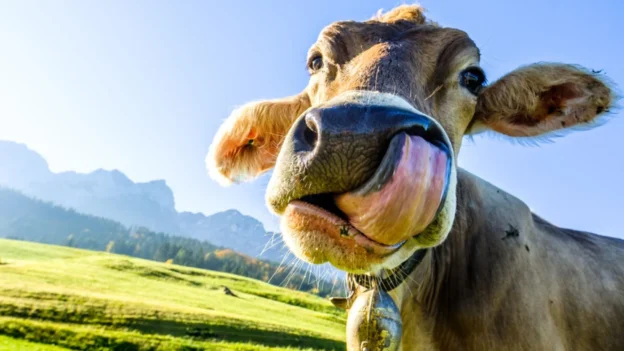Denmark has decided to impose a tax on livestock farmers for greenhouse gas emissions produced by the flatulence of animals such as cows, sheep and pigs from 2030. This tax on animals makes Denmark the first country to take this measure in order to reduce emissions of methane, an extremely potent gas that contributes significantly to global warming.
Tax on animal flatulence and the climate goal
Finance Minister Jeppe Bruus explained that this initiative is part of the national objective to reduce greenhouse gas emissions by 70% by 2030 compared to 1990 levels. From 2030, livestock farmers will have to pay 300 Danish kroner (equivalent to US$43) for each ton of carbon dioxide equivalent emitted.
This tax will increase to 750 kronor ($108) by 2035. However, due to a 60% tax deduction on revenues, the effective cost per ton will be 120 kroner ($17.3) initially, rising to 300 kroner by 2035.
The impact of methane
Although carbon dioxide is the main focus in the fight against climate change, methane and methane is a gas that traps about 87 times more heat over a 20-year period, according to the U.S. Oceanic and Atmospheric Administration. U.S. Oceanic and Atmospheric Administration (NOAA). (NOAA).
Methane emissions have been increasing rapidly since 2020, with livestock accounting for approximately 32% of methane emissions caused by human activities, according to the UN Environment Program.
Denmark seeks to take a decisive step towards climate neutrality by 2045 by being the first country to implement a real CO₂ rate in the agricultural sector. Jeppe Bruus hopes that this measure will inspire other countries to follow suit. In contrast, New Zealand had adopted similar legislation that was due to come into force in 2025, but was repealed following criticism and a change of government.
Historic commitment in Denmark
The Danish government, in coalition with center-right parties, reached an agreement with representatives of farmers, industry and trade unions, after months of negotiations and agricultural protests across Europe. The Danish Nature Conservation Society has called the agreement a “historic compromise,” noting that it will lay the groundwork for a restructured food industry beyond 2030.
A typical cow in Denmark produces about 6 metric tons of carbon dioxide equivalent per year. The country, being a major exporter of dairy products and pork, will also apply the tax to pigs, although its emissions are significantly lower. This new tax will be debated in the Danish parliament, but its approval is anticipated thanks to the broad consensus achieved.
According to official Danish statistics, by June 30, 2022, there were 1,484,377 cows in Denmark, a slight decrease from the previous year. This underlines the importance of the livestock sector in the Danish economy and the relevance of the new measures for its long-term sustainability.
Follow us on social networks and don’t miss any of our publications!
YouTube LinkedIn Facebook Instagram X
Source: vozdeamerica
Photo: Shutterstock

